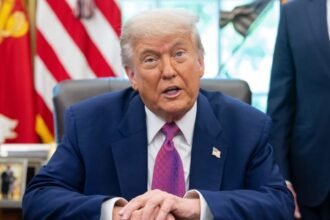Washington DC: NASA has implemented sweeping restrictions barring Chinese nationals even those holding valid US visas from accessing its facilities, participating in research programs, or being part of internal networks and meetings. The shift, coming into effect September 5, marks a significant escalation in the agency’s stance toward national security and technology transfer.
According to The Register, the ban was justified by recent espionage cases, including one involving a dual Chinese/American citizen suspected of downloading sensitive aerospace data, including sensor technology and infrared-seeking missile technology.
NASA’s press secretary, Bethany Stevens, affirmed that the agency’s decision is part of its internal measures to mitigate both physical and cybersecurity vulnerabilities. Those affected, as reported by The Tribune and NDTV, include contractors and researchers who found themselves unexpectedly locked out of systems and denied access to key collaborative platforms.
Context & Reactions:
- According to The Register, this policy change emerges amid intensifying US-China competition in space exploration, as both nations race toward the Moon and beyond.
- Critics argue that this move may dampen scientific collaboration and slow innovation. Supporters say it is necessary to protect intellectual property and maintain US strategic advantage.
- China has not yet issued a detailed public response. Observers expect diplomatic friction, especially involving academic and research institutions.
Conclusion:
NASA’s decision to expel or exclude Chinese nationals from its internal research ecosystem reflects growing geopolitical strain in space and technology. This is not simply about security; it’s about who controls the narrative and the frontier of tomorrow’s science. As nations vie for dominance in space, policies like these will likely become more common and controversial.















